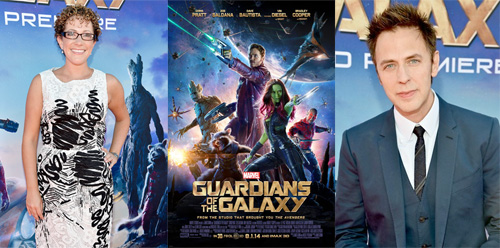
It is Written:
Slumdog Millionaire and the Power of Inevitability
Around these parts, it usually takes two things to make me write about a piece of cinema: first it has to be really, really good, and the second is that it has to have some connection to television as a medium. This is a self-imposed standard: I know that there are very few “pure” television readers of this blog (and comparatively “few” readers period), and that everyone is usually interested to hear about a great film. But I’m not a film reviewer, and my critical eye for it hasn’t really been developed, so being able to link it back into the world of television gives me a bit of a comfort level.
It was a comfort level that was in full effect as I watched my first “awards season” film of the year, the powerful and stunning Slumdog Millionaire from British director Danny Boyle. The film is about a Mumbai slumdog on the Indian version of “Who Want’s To Be A Millionaire?”, and diverges throughout the film into how Jamal got to the point wherein he could be on this show, answering these questions, and placed in this position. The structure of the film is clear within the first few minutes: you nod your head, accept what the film is trying to accomplish, and then begin the process of appreciating the stunning cinematography, the wonderful direction, the great child acting performances, and the stunning music.
The film’s conclusion is inevitable, not in terms of result but in structure: you know how the film will progress, and by the time you reach that moment you are capable of choreographing every step of the way. But by the end, presuming you’ve been watching all along, Slumdog Millionaire will rouse an audience like few other films. It is about the smallest of realizations, the broadest of events, and a fine example of how very powerful a film like this can be.
What struck me in that moment is that the film owes more to the trivia game show at its center than just a convenient setting for this tale: its storytelling operates in much the same fashion as does a reality show, introducing a fairly simple structure and following it to the point there the structure is secondary to character, to personality, to humanity. Reality shows in general are only as good as their contestants: every game of Who Wants to Be a Millionaire? was entirely the same, and every season of Survivor is really the same basic game outside of a few different twists and turns.
I know that some will view this comparison as something almost sacreligious, but it should be seen as a compliment: what takes most reality shows 13 episodes to accomplish is done here in only two short hours, less a rollercoaster than a steady climb up a lift hill. You know what’s about to happen: it is inevitable that you are going to reach the top and rush down the hill to the inversion below. But when this is all happening in such an emotional, engrossing and highly compelling environment crafted by Danny Boyle and the entire team who worked on the film, it feels like something so much more: by the time you’re rushing down, you’re caught between enjoying the ride and looking back with nostalgia on the climb itself.
Continue reading →
 In his “review” of Star Wars: The Force Awakens—it’s really more of a commentary piece if we’re playing semantics—Salon’s Andrew O’Heir makes what I would say is a fair point regarding the film:
In his “review” of Star Wars: The Force Awakens—it’s really more of a commentary piece if we’re playing semantics—Salon’s Andrew O’Heir makes what I would say is a fair point regarding the film:





 It’s not often I write about movies in this neck of the woods, but it’s hard not to use Cultural Learnings as an outlet for my thoughts about
It’s not often I write about movies in this neck of the woods, but it’s hard not to use Cultural Learnings as an outlet for my thoughts about 

 J.K. Rowling has yet to write a perfect novel. While she still has a chance with next week’s release of Deathly Hallows, she has yet to craft a literary masterpiece that lacks a single plot hole, inconsistency or highly illogical subplot regarding a textbook. And so it is that the directors taking on the task of adapting these books need to keep in mind that the text placed in front of them is, well, perhaps a little bit flawed.
J.K. Rowling has yet to write a perfect novel. While she still has a chance with next week’s release of Deathly Hallows, she has yet to craft a literary masterpiece that lacks a single plot hole, inconsistency or highly illogical subplot regarding a textbook. And so it is that the directors taking on the task of adapting these books need to keep in mind that the text placed in front of them is, well, perhaps a little bit flawed.





